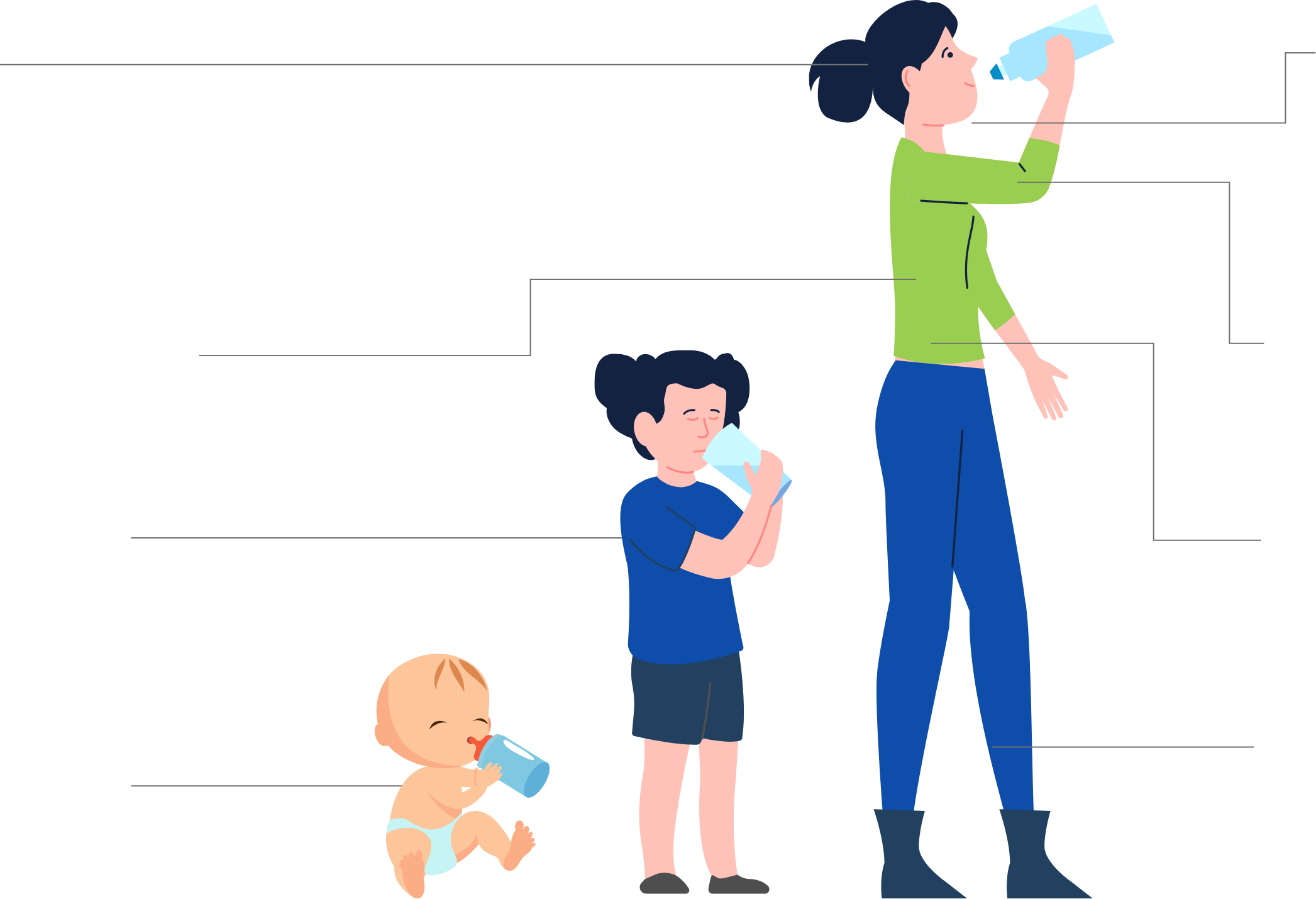Get Educated on Water: What to Know

FAQs
How much water do I need to drink each day?
The International Sports Medicine Institute recommends daily water intake of 1/2 oz per pound of body weight. The means, the average woman of 135 pounds should drink 67 ounces or about eight (8) glasses a day or four (4) half-liter bottles a day.
An easy way to remember this is to drink one 16 ounce bottle first thing in the morning, one at lunch, one before dinner, and the last before bedtime.
How do I know if I’ve had enough water?
According to Scientific Advisory Board member, Christine Palumbo (Poe-lum-bo), who is a registered dietician and nutritionist, there are several ways to tell:
1. Keep count of how much water you drink
2. The color of our urine is a good indicator. Anything darker than a pale lemon is an indication the body is not getting enough water to flush away impurities!
How can drinking bottled water help my complexion?
Drinking pure water keeps your skin hydrated and flushes away impurities that may cause skin problems. Beauty experts will tell you it doesn’t matter how good the quality of your cosmetics are if your skin doesn’t have enough moisture.
Drinking enough water also helps your skin tolerate the hot and drying sun.
Does drinking water aid in weight loss?
Absolutely! If you don’t believe us, ask Oprah Winfrey. In a recent show, Oprah described drinking pure water as her number one way of losing weight and staying fit.
When your body is fully hydrated you will not mistake hunger for dehydration. Drinking a glass or two of water before a meal will reduce your hunger, hence, the amount you consume.
Interested in a quick way to burn a couple hundred calories? Drink 16 ounces of pure ice-cold water and you’ll burn up to 200 calories of metabolic heat just to warm it to body temperature.
Should I cook with bottled water?
Yes! Think about it: Most recipes call for water, which is directly absorbed into the food you’re cooking, especially in starchy staples like pasta and rice. Unlike tap water, bottled water will not alter the taste and is free from bacteria, chemical pollutants, and harmful minerals potentially found in the pipes that carry water to your tap such as lead or copper.
Purified Water
vs Spring Water


